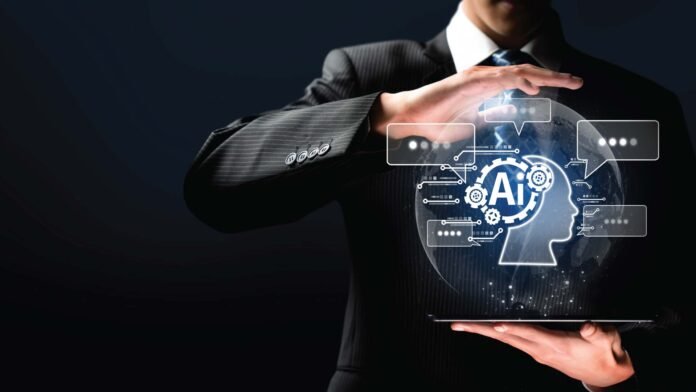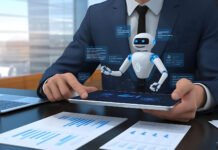The HR industry is undergoing a remarkable transformation, driven by advancements in generative AI technology. With generative AI in the picture, HR teams can automate routine tasks, personalize employee experiences, and derive actionable insights from vast amounts of data.
However, implementing the right GenAI tools can be difficult; therefore, today at HRTech Cube, we will explore five essential generative AI tools transforming HR in 2025 that will help you stay ahead of HR operations.
Table of Contents
1. The Role of Generative AI in HR Process
2. Top Generative AI Tools in HR in 2025
3. The Future of Gen AI in HR
Conclusion
1. The Role of Generative AI in HR Process
The HR landscape has always been data-intensive, requiring meticulous attention to detail and a deep understanding of people dynamics, and with GenAI, you and your team can harness the power of machine learning and natural language processing.
This transformation is marked by three critical advancements:
1.1. Enhanced Efficiency
GenAI automates repetitive tasks such as resume screening, scheduling interviews, and onboarding processes, saving time and reducing human error.
1.2. Actionable Insights
Advanced analytics that is powered by GenAI will help you identify trends, forecast workforce needs, and make data-driven decisions that align with organizational goals.
1.3. Providing Personalization
The AI-driven tools will help you analyze employee data and deliver tailored recommendations for employees’s training, career development, and wellness programs, fostering a more engaged and motivated workforce.
These capabilities make GenAI an indispensable tool that will help your business adapt quickly to the constant change in workforce dynamics and employee expectations.
2. Top Generative AI Tools in HR in 2025
Here is an overview of key features, pros and cons, and pricing of the top four generative AI tools:
2.1. Leena AI
The first one on the list is Leena AI, an AI-powered HR assistant that streamlines various HR functions, including employee query management, performance reviews, and policy dissemination. The tool’s conversational AI engine enables employees to access information instantly through chatbots integrated with popular platforms such as Slack and Microsoft Teams. However, it has limited customization for niche use cases. Now, it starts at $5 per user per month with custom pricing for enterprises.
2.2. Lattice
This AI-powered HR assistant combines performance management and employee engagement into a single platform. Lattice uses AI to provide actionable feedback, goal tracking, and personalized learning recommendations that will align with company objectives. However, the tool has a steep learning curve for new users. Regarding the starting pricing, Lattice provides $11 per user per month with tiered plans available.
2.3. SAP SuccessFactors HCM with Joule
SAP SuccessFactors integrates GenAI through its Joule platform, offering advanced analytics, personalized employee experiences, and streamlined HR processes. It is particularly effective for multinational organizations due to its scalability and strong security protocols. However, the implementation cost is quite high (custom pricing based on organizational size and requirements) and complex when compared to other AI-powered HR assistant platforms in our list.
2.4. Effy
The fourth one on our list is Effy, a talent management tool that leverages GenAI to optimize recruitment, skills assessments, and employee development. Further, its predictive analytics capabilities help you to identify high-potential candidates and employees. Regarding pricing, Effy starts at $8 per user per month, with enterprise pricing available. However, it has limited customization and limited scalability for large organizations.
3. The Future of Gen AI in HR
With workplace applications still emerging, generative AI is set to evolve beyond being merely a feature in HR tech and become a foundational enabler. According to Gartner, 38% of HR leaders have explored or implemented AI solutions to improve process efficiency within their organization. Further, it was predicted that more than 45% of HR leaders will implement GenAI solutions by the end of 2025.
For instance, within a recruiting process, GenAI can help you by writing job descriptions and communicating with candidates. Now once you have acquired a talent, it can offer numerous tools that support onboarding and professional growth. The genAI tool creates a questionnaire for new employees to gather information to draft performance reviews and recommends customized learning plans for individual employees.
We can also expect a more seamless HR process as it will also guide HR professionals to stay relevant and effective by addressing potential skills gaps within the workforce and setting up upskilling and reskilling programs to address organizational needs. Further, HR leaders must also consider getting involved in the governance and deployment of GenAI within their organization.
Conclusion
As GenAI continues to evolve, it will become an integral part of the HR work environment. Therefore, to stay ahead of the competitive curve, you can implement generative AI tools into your organization, reduce your team’s admin workload, and spend more time on work that truly matters.
Explore Hrtech Articles for the latest Tech Trends in Human Resources Technology












